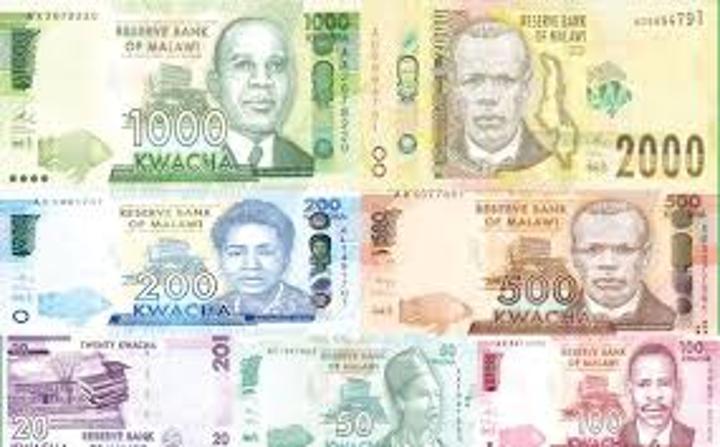Africa-Press – Malawi. Currency depreciation is a fall in the value of a currency in terms of its exchange rate versus other currencies. Currency depreciation can occur due to factors such as economic fundamentals, interest rate differentials, political instability, or risk aversion among investors.
Devaluation includes a reduction in the value of domestic currency in terms of foreign currencies by the government under a fixed exchange rate system. Depreciation decreases in the value of domestic currency in terms of foreign currencies by the government under a flexible exchange rate system.
Background
The kwacha has depreciated again by 4.7 percent against the US dollar, triggering fears of escalating cost of living in the country. The announcement of the depreciation follows the foreign exchange auction the Reserve Bank of Malawi (RBM) conducted on Wednesday. The drop is the fourth since January this year.
The kwacha will now be trading at K1 180 against the dollar from K1 126. In general, when the Malawi Kwacha loses value, Malawians’ purchasing power will decline as well because products — especially imported ones — will cost more money. And when that causes a general rise in prices, we should expect inflation.
As the local currency depreciates, Malawians should expect imports to become more expensive, so locals will buy fewer imported goods. On the other hand, our exported goods will cost less to international buyers, so their demand tends to grow. Fewer imports and more exports will reduce the trade deficit and could lead to a surplus. In other words, Malawi needs to export more goods to the international market as a way of solving the challenge.
Expensive imports will cause Malawians to demand more local goods, so their prices will rise as well. Exports may become more attractive because producers may get more money by selling to the international market. A devaluation might increase the production of certain products and stimulate economic growth.
Companies
Currency depreciation will affect companies. When the Malawi currency depreciates (meaning that the value of your currency goes down), the price of imported goods and services rises for you and your business. This means that the imported products and services will be more expensive, which will lead to less demand.
If a country relies on many imported goods, a currency depreciation can reduce living standards, weaken economic growth, and increase inflation. However, depreciation can also strengthen domestic producers and increase aggregate output, making it a common policy option to facilitate economic recoveries.
Solutions
Forward contract
This is the simplest and most frequently used tool. It allows you to manage currency risk by fixing your currency rate in advance. This eliminates 100% of the risks associated with market fluctuations. For example, an exporting company expects to receive US$500,000 in three months.
Devaluation occurs when a government wishes to increase its balance of trade (exports minus imports) by decreasing the relative value of its currency. The government does this by adjusting the fixed or semi-fixed exchange rate of its currency versus that of another country. In order to restore the value of depreciating domestic currency, the central bank buys the US dollars in the international money market.
2. Maintaining Rates
Governments of emerging market countries often do this to create stability in the value of their currencies. To keep the pegged foreign exchange rate stable, the government of the country must hold large reserves of the currency to which its currency is pegged to control changes in supply and demand.
Conclusion
It is obvious that Malawi relies on many imported goods, therefore, the depreciation of the Malawi Kwacha will reduce living standards, weaken economic growth, and increase inflation.
For More News And Analysis About Malawi Follow Africa-Press






